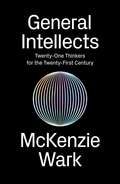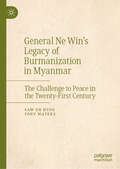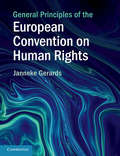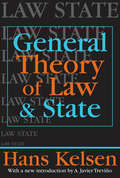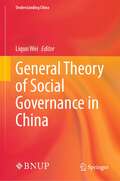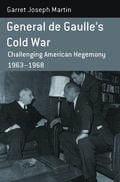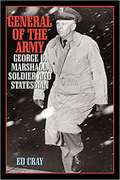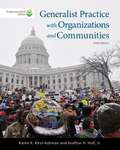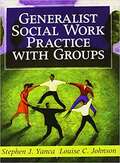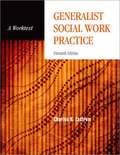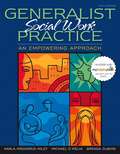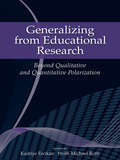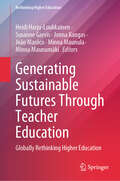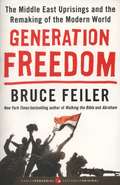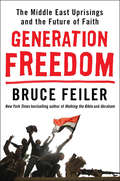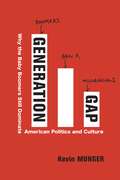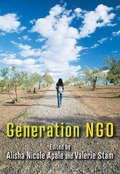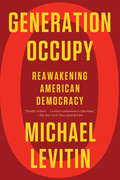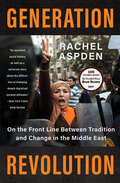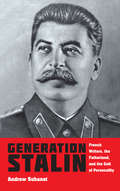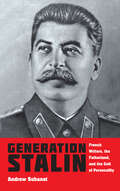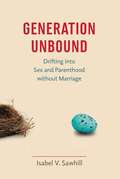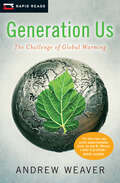- Table View
- List View
General He Yingqin
by Peter WorthingA revisionist study of the career of General He Yingqin, one of the most prominent military officers in China's Nationalist period (1928–1949) and one of the most misunderstood figures in twentieth-century China. Western scholars have dismissed He Yingqin as corrupt and incompetent, yet the Chinese archives reveal that he demonstrated considerable success as a combat commander and military administrator during civil conflicts and the Sino-Japanese War. His work in the Chinese Nationalist military served as the foundation of a close personal and professional relationship with Chiang Kai-shek, with whom he worked closely for more than two decades. Against the backdrop of the Nationalist revolution of the 1920s through the 1940s, Peter Worthing analyzes He Yingqin's rise to power alongside Chiang Kai-shek, his work in building the Nationalist military, and his fundamental role in carrying out policies designed to overcome the regime's greatest obstacles during this turbulent period of Chinese history.
General Intellects: Twenty-Five Thinkers for the Twenty-First Century
by Mckenzie WarkA guide to the thinkers and the ideas that will shape the futureWhat happened to the public intellectuals that used to challenge and inform us? Who is the Sartre or De Beauvoir of the internet age? General Intellects argues that we no longer have such singular figures, but we do have general intellects whose writing could, if read together, explain our times. Covering topics such as culture, politics, work, technology, and the Anthropocene, each chapter is a concise account of an individual thinker, providing useful context and connections to the work of the others. McKenzie Wark’s distinctive readings are appreciations, but are also critical of how neoliberal universities militate against cooperative intellectual work to understand and change the world. The thinkers included are Amy Wendling, Kojin Karatani, Paolo Virno, Yann Moulier Boutang, Maurizio Lazzarato, Franco “Bifo” Berardi, Angela McRobbie, Paul Gilroy, Slavoj i ek, Jodi Dean, Chantal Mouffe, Wendy Brown, Judith Butler, Azumo Hiroki, Paul B. Préciado, Wendy Chun, Timothy Morton, Quentin Meillassoux, Isabelle Stengers, and Donna Haraway.
General Ne Win’s Legacy of Burmanization in Myanmar: The Challenge to Peace in the Twenty-First Century
by Tony Waters Saw Eh HtooThis book focuses on how Burmanization created and reinforced ethnic divides since the 1962 coup d’etat. when General Ne Win concentrated all authority in the Burmese speaking army. Background research for the book includes Burmese language materials from the Burmese Socialist Party (BSP) and others that describe with what the BSP believed in their own terms. This is unique from previous works on the topic which either simply pointed out that the policies “didn’t work” and therefore are uninteresting, or to claim that they were “necessary” given the chaos of the previous regime. The authors agree that Ne Win’s policies “didn’t work.” However, the book goes further by elaborating why Burmanization policies developed in the 1960s are important for understanding Burmese society today. Most importantly, Ne Win’s ideology reflects how patterns of interethnic relationships in Myanmar lead to the “intractability” of the battles in early twenty-first century Myanmar.
General Principles of the European Convention on Human Rights
by Janneke GerardsThe European Convention of Human Rights is one of the world's most important and influential human rights documents. It owes its value mainly to the European Court of Human Rights, which applies the Convention rights in individual cases. This book offers a clear insight into the concepts and principles that are key to understanding the European Convention and the Court's case-law. It explains how the Court generally approaches the many cases brought before it and which tools help it to decide on these cases, illustrated by numerous examples taken from the Court's judgements. Core issues discussed are the types of Convention rights (such as absolute rights); the structure of the Court's Convention rights review; principles and methods of interpretation (such as common ground interpretation and the use of precedent); positive and negative obligations; vertical and horizontal effect; the margin of appreciation doctrine; and requirements for the restriction of Convention rights.
General Theory of Law and State
by Hans KelsenWidely regarded as the most important legal theorist of the twentieth century, Hans Kelsen is best known for his formulation of the "pure theory of law", - within which the study of international law was his special field of work. The present volume, "General Theory of Law and State", first published in 1945, allowed Kelsen to adjust his pure theory of law to American circumstances after World War II. It also afforded him the opportunity to present to English-speaking readers his latest ideas on the supremacy of international law. The volume is divided into two parts: the first devoted to law, the second to the state. Together these topics constitute the most systematic and comprehensive exposition of Kelsen's jurisprudence. The volume is not only a compendium of Kelsen's lifework up to that time; it is also an extension of his theories, "to embrace the problems and institutions of English and American law as well as those of the Civil Law countries". Indeed, references to Continental European law are minimal compared with examples, scattered throughout the text, taken from the U.S. Constitution and several American court cases. This is more than a concession to American readers; it signifies that Kelsen's legal theory is truly general in that it accounts for the Common Law as well as the Civil Law. A systematic treatise on jurisprudence, "General Theory of Law and State" is a substantial reformulation of Kelsen's ideas articulated in several of his previous books, written in German. The juridical principles put forth by the most important legal theorist of the twentieth century remain of great value. This volume will be read by legal scholars, political scientists, and intellectual historians.
General Theory of Social Governance in China (Understanding China)
by Liqun WeiThis book discusses the connotation and function of social governance and elaborates on social governance thought in classical Marxism, Mao Zedong’s social governance thought, and social governance thought in socialism with Chinese characteristics, especially in Xi Jinping’s New Era. Together, these components constitute the basic theory of social governance in China. Moreover, the book clarifies ancient and modern social governance thought in China and analyzes institutional innovations, practices, and experiences of Chinese social governance. It depicts the evolution and reform of social governance in China both vertically and horizontally. In turn, it addresses the overall system, fundamental institutions, hierarchy, field, and mode of China’s social governance, as well as its connection to national security. It discusses major issues and their causes, together with enhancing mechanisms. In closing, it outlines future trends in Chinese social governance, and its role in and effects on the global governance system.
General de Gaulle's Cold War
by Garret Joseph MartinThe greatest threat to the Western alliance in the 1960s did not come from an enemy, but from an ally. France, led by its mercurial leader General Charles de Gaulle, launched a global and comprehensive challenge to the United State's leadership of the Free World, tackling not only the political but also the military, economic, and monetary spheres. Successive American administrations fretted about de Gaulle, whom they viewed as an irresponsible nationalist at best and a threat to their presence in Europe at worst. Based on extensive international research, this book is an original analysis of France's ambitious grand strategy during the 1960s and why it eventually failed. De Gaulle's failed attempt to overcome the Cold War order reveals important insights about why the bipolar international system was able to survive for so long, and why the General's legacy remains significant to current French foreign policy.
General of the Army: George C. Marshall, Soldier and Statesman
by Ed CrayAs the U.S. Army's Chief of Staff through World War II, George Catlett Marshall (1880-1959) organized the military mobilization of unprecedented numbers of Americans and decisively shaped the Allied strategy that defeated first Nazi Germany, then Imperial Japan. As President Truman's Secretary of State, and later as his Secretary of Defense during the Korean War, Marshall the statesman created the European Recovery Act (known as the Marshall Plan), made possible the Berlin Airlift, and was awarded the Nobel Peace Prize. This masterful biography brings the reader face to face with a genuine American hero.
Generalist Practice with Organizations and Communities, Sixth Edition
by Karen K. Kirst-Ashman Grafton H. HullThis book is a guide to generalist social work practice with organizations and communities. The sixth edition is thoroughly updated to reflect the Council on Social Work Education's (CSWE) latest ethical standards as well as contemporary issues in social work literature.
Generalist Social Work Practice With Groups
by Louise C. Johnson Stephen J. YancaExamining all aspects of group work that generalist social workers are likely to encounter, Generalist Social Work Practice with Groups uses a practical and applied approach to show how to effectively form and facilitate groups. It is the third in a series of generalist texts by Stephen Yanca and Louise Johnson that uses the authors’ generalist model with individuals, families, groups, organizations, and communities.
Generalist Social Work Practice: A Worktext
by Charles ZastrowCharles Zastrow-a leader in the field for over forty years-combines the key components of traditional and contemporary approaches to teaching social work practice into one comprehensive volume in the 11th edition of Generalist Social Work Practice. From the history of social work and the ethics of practice, to the modern approaches to self care and asset-based community development-this extensive worktext presents the knowledge, values, and skills needed for entry-level social work practice. Zastrow emphasizes the importance of counseling in various practice settings by including the Counseling Theories Resource Manual (CTRM), a series of modules that presents and critiques the prominent theories of counseling that are widely used by social workers, including reality therapy, rational therapy, behavior therapy, as well as specific intervention techniques useful in working with individuals, treatment groups, and families. Structured for use at the undergraduate and graduate level, this book provides the theoretical and practical knowledge needed for students to become change agents.
Generalist Social Work Practice: An Empowering Approach (5th edition)
by Karla Krogsrud Miley Michael O'Melia Brenda DuboisThe fifth edition of this innovative text continues to emphasize a generalist, empowerment-oriented approach, along with practice strategies and techniques for working toward individual client and social change.
Generalizing from Educational Research: Beyond Qualitative and Quantitative Polarization
by Kadriye Ercikan Wolff-Michael Roth"This book frames the major challenge facing educational researchers as one of going beyond the mindless qualitative-quantitative divide and addressing the overarching/fundamental challenge of enriching and enlarging educational inquiry. It is a signature contribution to the field." - Clifton F. Conrad, University of Wisconsin-Madison, USA Tackling one of the most critical issues in education research today - how research methods are related to value and meaningfulness - this frontline volume achieves two purposes. First, it presents an integrated approach to educational inquiry that works toward a continuum instead of a dichotomy of generalizability, and looks at how this continuum might be related to types of research questions asked and how these questions should determine modes of inquiry. Second, it discusses and demonstrates the contributions of different data types and modes of research to generalizability of research findings, and to limitations of research findings that utilize a single approach. International leaders in the field take the discussion of generalizing in education research to a level where claims are supported using multiple types of evidence. The volume pushes the field in a different direction, where the focus is on creating meaningful research findings that are not polarized by qualitative versus quantitative methodologies. The integrative approach allows readers to better understand possibilities and shortcomings of different types of research.
Generating Sustainable Futures Through Teacher Education: Globally Rethinking Higher Education (Rethinking Higher Education)
by Susanne Garvis Heidi Harju-Luukkainen Jonna Kangas João Marôco Minna Maunula Minna MaunumäkiThis book examines policies and practices within higher education, particularly in the field of teacher education, that foster sustainability from a variety of viewpoints. It sheds light on both common facilitators and obstacles across 18 research-oriented chapters. It scrutinizes global research, policies, and practices, and delves into the theoretical frameworks and empirical evidence that underpin the research. It also offers critical perspectives on teacher education, emphasizing potential areas for growth. The collective findings presented in this book offer valuable insights into the sustainable development of teaching and research within higher education institutions, providing readers with a deeper understanding of the challenges at hand. Its concluding chapter culminates in an action plan for higher education institutions, synthesizing the global research presented throughout; with the aim of rejuvenating higher education and, consequently, societies as a whole. In essence, this book serves as a catalyst for initiating a global conversation within higher education, facilitating the exploration of new discourse topics, and transforming the mindset prevalent in academia, all with the ultimate goal of nurturing sustainable futures.
Generation Freedom
by Bruce FeilerOn January 25, 2011, the world watched as Egyptian protestors stormed Cairo's Tahrir Square, demanding the resignation of President Hosni Mubarak. After a partial resolution, another uprising took place in Tripoli against Libya's dictator, Muammar Gaddafi. Now, a large portion of the Middle East and North Africa is aflame with protests and a spirit of reform. reform. Who are the people leading this revolt, and what does it say about the relationship between Islam and democracy? What is the future of Islam in an increasingly secular society? How do these young revolutionaries' cries for fair elections and freedom of speech compare to our own nation's call for liberty in the past?
Generation Freedom
by Bruce FeilerTimely and provocative, Generation Freedom looks at the historic youth uprisings sweeping the Middle East and what they mean for the future of peace, coexistence, and relations with the West.At a time when the world is asking how the Arab Spring and the death of Osama bin Laden will reshape our times, Bruce Feiler, bestselling author of Walking the Bible and Abraham, offers a vivid behind-the-scenes portrait of history in the making. He marches with the daring young organizers in Liberation Square, confronts the head of the Muslim Brotherhood, and witnesses the dramatic rebuilding of a church at exactly the moment sectarian violence threatens the peaceful movement. Drawing on fifteen years of travels across the region, from Egypt to Israel, Iraq to Iran, Feiler brings his unprecedented experience to the most pressing questions: how the rise of freedom will affect terrorism; Middle East peace; and relations among Jews, Christians, and Muslims worldwide. Eloquent and thoughtful, Generation Freedom offers a hopeful vision of how this unrivaled upheaval will transform the world.
Generation Gap: Why the Baby Boomers Still Dominate American Politics and Culture
by Kevin MungerThe Baby Boomers are the largest and most powerful generation in American history—and they aren’t going away any time soon. They are, on average, whiter, wealthier, and more conservative than younger generations. They dominate cultural and political institutions and make up the largest slice of the electorate. Generational conflict, with Millennials and Generation Z pitted against the aging Boomer cohort, has become a media staple. Older and younger voters are increasingly at odds: Republicans as a whole skew gray-haired, and within the Democratic Party, the left-leaning youth vote propels primary challengers. The generation gap is widening into a political fault line.Kevin Munger marshals novel data and survey evidence to argue that generational conflict will define the politics of the next decade. He examines the historical trends that made the Baby Boomers so consequential and traces the emergence of age-based political and cultural divisions. Boomers continue to prefer the media culture of their youth, but Millennials and Gen Z are using the internet to render legacy institutions irrelevant. These divergent media habits have led more people than ever to identify with their generation. Munger shows that a common “cohort consciousness” binds aging Boomer voters into a bloc—but a shared identity and purpose among Millennials and Gen Z could topple Boomer power.Bringing together expertise in data analysis and digital culture with keen insight into contemporary politics, Generation Gap explains why the Baby Boomers remain so dominant and how quickly that might change.
Generation NGO
by Apale, Alisha Nicole & Stam, ValerieYoung Canadians are increasingly active and engaged in global issues. Many are eagerly poised to contribute–in smaller and even larger ways–to international development and the Canadian national politics that, for better or worse, shape the field. Generation NGO captures some of the first impressions of these young international development professionals before they are relegated to the dusty corners of memory. It provides snapshots of some of their first experiences with inequality and poverty, power and privilege, stereotypes, identity, social location, prejudice, and injustice. It is as much about questions as it is about answers. These essays illustrate the continual negotiation of development workers in positioning and conducting themselves in a morally and ethically charged profession. A must-read collection for Canadians contemplating development work abroad, this collection will also provide food for thought for more seasoned veterans of NGO forays long after they have returned from the field.
Generation Occupy: Reawakening American Democracy
by Michael LevitinThe fight for a $15 minimum wage. Nationwide teacher strikes. Bernie Sanders&’s political revolution and the rise of AOC. Black Lives Matter. #MeToo. Read how the Occupy movement helped reshape American politics, culture and the groundbreaking movements to follow. On the ten-year anniversary of the Occupy movement, Generation Occupy sets the historical record straight about the movement&’s lasting impacts. Far from a passing phenomenon, Occupy Wall Street marked a new era of social and political transformation, reigniting the labor movement, remaking the Democratic Party and reviving a culture of protest that has put the fight for social, economic, environmental and racial justice at the forefront of a generation. The movement changed the way Americans see themselves and their role in the economy through the language of the 99 versus the 1 percent. But beyond that, in its demands for fairness and equality, Occupy reinvigorated grassroots activism, inaugurating a decade of youth-led resistance movements that have altered the social fabric, from Black Lives Matter and Standing Rock to March for Our Lives, the Global Climate Strikes and #MeToo. Bookended by the 2008 financial crisis and the coronavirus pandemic, Generation Occupy attempts to help us understand how we got to where we are today and how to draw on lessons from Occupy in the future.
Generation Revolution: On the Front Line Between Tradition and Change in the Middle East
by Rachel AspdenGeneration Revolution unravels the complex forces shaping the lives of four young Egyptians on the eve and in the aftermath of the Arab Spring, and what their stories mean for the future of the Middle East.In 2003 Rachel Aspden arrived in Egypt as a 23-year-old journalist. She found a country on the brink of change. The two-thirds of Egypt’s eight million citizens under the age of 30 were stifled, broken, and frustrated, caught between a dictatorship that had nothing to offer them and their autocratic parents’ generation, defined by tradition and obedience. In January 2011 the young people’s patience ran out. They thought the revolution that followed would change everything. But as violence escalated, the economy collapsed, and as the united front against President Mubarak shattered into sectarianism, many found themselves at a loss. Following the stories of four young Egyptians — Amr, the atheist software engineer; Amal, the village girl who defied her family and her entire community; Ayman, the one-time religious extremist; and Ruqayah, the would-be teenage martyr — Generation Revolution exposes the failures of the Arab Spring and shines new light on those left in the wake of its lost promise.
Generation Stalin: French Writers, the Fatherland, and the Cult of Personality
by Andrew SobanetGeneration Stalin traces Joseph Stalin’s rise as a dominant figure in French political culture from the 1930s through the 1950s. Andrew Sobanet brings to light the crucial role French writers played in building Stalin’s cult of personality and in disseminating Stalinist propaganda in the international Communist sphere, including within the USSR. Based on a wide array of sources—literary, cinematic, historical, and archival—Generation Stalin situates in a broad cultural context the work of the most prominent intellectuals affiliated with the French Communist Party, including Goncourt winner Henri Barbusse, Nobel laureate Romain Rolland, renowned poet Paul Eluard, and canonical literary figure Louis Aragon. Generation Stalin arrives at a pivotal moment, with the Stalin cult and elements of Stalinist ideology resurgent in twenty-first-century Russia and authoritarianism on the rise around the world.
Generation Stalin: French Writers, the Fatherland, and the Cult of Personality
by Andrew SobanetA look at how four French writers of the 1930s, ‘40s, and ‘50s contributed to the rise of Stalin in their country and abroad.Generation Stalin traces Joseph Stalin’s rise as a dominant figure in French political culture from the 1930s through the 1950s. Andrew Sobanet brings to light the crucial role French writers played in building Stalin’s cult of personality and in disseminating Stalinist propaganda in the international Communist sphere, including within the USSR. Based on a wide array of sources—literary, cinematic, historical, and archival—Generation Stalin situates in a broad cultural context the work of the most prominent intellectuals affiliated with the French Communist Party, including Goncourt winner Henri Barbusse, Nobel laureate Romain Rolland, renowned poet Paul Eluard, and canonical literary figure Louis Aragon. Generation Stalin arrives at a pivotal moment, with the Stalin cult and elements of Stalinist ideology resurgent in twenty-first-century Russia and authoritarianism on the rise around the world.“This is an outstanding work of intellectual history. . . . Highly recommended.” —Choice“A landmark study, brilliantly written, containing exemplary scholarship. Sobanet establishes himself with this volume as one of the foremost interpreters of French intellectual life. He brings to his study a cornucopia of historical knowledge and the finesse of a first-class literary critic.” —Lawrence D. Kritzman, editor of The Columbia History of Twentieth-Century French Thought“This is an ambitious project that is well executed, with a readership that is potentially far reaching—with implications for Russian/Stalin studies, French studies, including politics and society, as well as propaganda writing and the role of the media more generally. . . . Generation Stalin is a very timely book.” —Denis M. Provencher, author of Queer French: Globalization, Language, and Sexual Citizenship in France“Sobanet’s study of “Generation Stalin” and the four writers he associates with the group, Henri Barbusse, Romain Rolland, Paul Eluard, and Louis Aragon, is, quite simply, magisterial. Written in lucid prose informed by meticulous and wide-ranging scholarship including archival material, books, essays, press items, and other relevant documents, the book provides an in-depth study of the rise of the Stalin cult in France.” —Carol J. Murphy, author of The Allegorical Impulse in the Works of Julien Gracq: History as Rhetorical Enactment in “Le Rivage des Syrtes” and “Un Balcon en forêt”
Generation Unbound
by Isabel V. SawhillOver half of all births to young adults in the United States now occur outside of marriage, and many are unplanned. The result is increased poverty and inequality for children. The left argues for more social support for unmarried parents; the right argues for a return to traditional marriage.In Generation Unbound, Isabel V. Sawhill offers a third approach: change "drifters" into "planners." In a well-written and accessible survey of the impact of family structure on child well-being, Sawhill contrasts "planners," who are delaying parenthood until after they marry, with "drifters," who are having unplanned children early and outside of marriage. These two distinct patterns are contributing to an emerging class divide and threatening social mobility in the United States.Sawhill draws on insights from the new field of behavioral economics, showing that it is possible, by changing the default, to move from a culture that accepts a high number of unplanned pregnancies to a culture in which adults only have children when they are ready to be a parent.
Generation Unbound: Drifting into Sex and Parenthood without Marriage
by Isabel V. SawhillOver half of all births to young adults in the United States now occur outside of marriage. A large proportion are unplanned. These facts suggest that today's young adults are drifting into relationships and are often unprepared for parenthood. What kind of future does this mean for their kids and for society as a whole? In Generation Unbound, Isabel V. Sawhill discusses likely causes for recent changes in the family, such as an increase in women's economic opportunities, the declining economic prospects of men, greater access to birth control and abortion, and new social norms that allow young people more choice #151;but provide less guidance on what it means to be an adult. Isabel V. Sawhill reveals an emerging class divide in patterns of marriage and childbearing: at the top of the ladder are "planners," who are marrying and having children only after establishing a career; at the bottom, and increasingly in the middle, are "drifters" who are having unplanned children early, outside of marriage, and without the stable support of a second parent. This divide is contributing to rising inequality and less social mobility in the U. S. Isabel V. Sawhill sees merit in the views of those on the political left, who argue for more social supports for the less advantaged, including more educational opportunities, expanded child care, parental leave, family-friendly workplaces, and financial assistance. She also agrees with those on the right who argue for traditional marriage as the best environment for raising children. But, she argues that public policies aimed at restoring marriage have not worked and that existing social supports cannot keep pace with an ongoing tide of childbearing outside of marriage. Instead, she points to a third way: greater personal responsibility among potential parents themselves. Drawing on new insights from behavioral economics, and the promise of new long-acting contraceptives, she suggests a future in which more children will be born to adults who want and are prepared to be parents. Contents 1. An Introduction 2. Changes in the Family: More Diversity, a Bigger Divide 3. Why We Should Worry: The Consequences of Choices about Marriage and Childbearing 4. A Growing Class Divide: Planners vs. Drifters 5. The Traditionalists vs. the Villagers: Why Government Alone Can't Solve the Marriage Problem 6. Making Better Decisions: The Need to Change the Default 7. Peering into the Future: Less Marriage, Fewer Children?
Generation Us: The Challenge of Global Warming (Rapid Reads)
by Dr. Andrew J. WeaverIn clear and accessible language, Generation Us explains the phenomenon of global warming, outlines the threat it presents to future generations and offers a path toward solutions to the problem. The reality of global warming has long been accepted within the scientific community, yet it remains a hotly debated topic at the political and social level. Why is this? Is it the fact that the ultimate effects of global warming will not be felt in our lifetimes? Do we really feel no moral responsibility for future generations? Dr. Weaver, one of the world's leading experts in the field, contends that, just as humans have been responsible for creating the problem of global warming, we must also be the solution.

